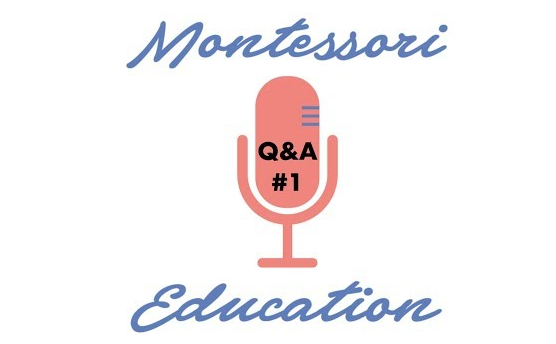Common Questions About Montessori
Here are some frequently asked questions about Montessori education and how it can be applied at home:
1. What is Montessori education?
Montessori is an educational approach based on the belief that children learn best when they are allowed to explore and interact with their environment at their own pace. It emphasizes hands-on learning, independence, self-directed activity, and a respect for each child’s unique developmental needs.
2. How is Montessori different from traditional education?
In traditional education, learning is often teacher-directed, with a structured curriculum and set timelines. In Montessori, the child is viewed as an active learner who drives their own learning process through exploration, discovery, and choice. The environment is designed to support this independence and curiosity.
3. What age group does Montessori work best for?
Montessori can be applied to children of all ages, starting from infancy through to adolescence. However, it is most commonly used in early childhood education (ages 3-6). Montessori principles can also be applied at home with toddlers and older children.
4. What materials are used in Montessori education?
Montessori materials are specially designed to be hands-on and promote independent learning. They are often made from natural materials like wood, metal, and fabric, and are intended to be self-correcting so that children can independently learn from their mistakes. Examples include sandpaper letters, number rods, and practical life tools (e.g., small brooms, pitchers, and spoons).
5. Can Montessori be used at home?
Yes, Montessori principles can easily be applied at home. Creating a prepared environment, encouraging independence, and providing open-ended, sensory-rich materials are all part of implementing Montessori at home. Simple activities like self-care routines, cooking together, or using child-sized tools for daily tasks can foster the Montessori philosophy in daily life.
6. How do I start Montessori at home?
To start Montessori at home, focus on creating a child-friendly environment with accessible materials, reduce clutter, and promote independence. You can incorporate Montessori-inspired activities like practical life skills (pouring, sweeping), sensory play, and tasks that help the child make decisions. Remember, the approach is more about fostering a mindset of self-directed learning than following a strict set of rules.
7. Do children need a special Montessori school or can they learn at home?
While a Montessori school is designed to provide a fully immersive Montessori experience, many Montessori principles can be successfully applied at home. Parents can follow Montessori methods and use Montessori-inspired materials, but it requires dedication and observation to support the child’s natural development at home.
8. How do you discipline in a Montessori environment?
In Montessori, discipline focuses on guiding children through positive reinforcement and respect for their behavior. Instead of traditional “punishments,” Montessori encourages setting clear expectations, modeling appropriate behavior, and helping children understand the consequences of their actions. Children are taught to reflect on their behavior and develop self-regulation.
9. What is the role of the adult in Montessori?
In Montessori, the adult is seen as a guide or facilitator, rather than the primary instructor. The adult’s role is to prepare the environment, observe the child, and offer support when needed. The goal is to allow the child to lead their own learning, with the adult stepping in only to offer guidance or assistance when necessary.
10. Is Montessori the same as homeschooling?
Montessori can be used as part of a homeschooling approach, but it’s not the same as traditional homeschooling. In Montessori, the emphasis is on learning through exploration and self-directed activity, with a focus on child-led learning and real-world skills. It requires a specific type of environment and resources to effectively implement, but it can be adapted to suit a home learning environment.
11. What are the benefits of Montessori?
The key benefits of Montessori include fostering independence, improving concentration, encouraging responsibility, and promoting social and emotional development. It helps children develop a love for learning, problem-solving skills, and a strong sense of self-confidence.
12. How do I know if Montessori is right for my child?
Montessori works well for children who are curious, self-motivated, and enjoy hands-on learning. It’s particularly effective for children who thrive in a structured yet flexible environment. However, not every child is suited to Montessori, and it’s important to observe your child’s needs and preferences to see if the approach aligns with their learning style.
By understanding these basic questions and principles, you can make informed decisions about incorporating Montessori into your child’s education and daily life.

